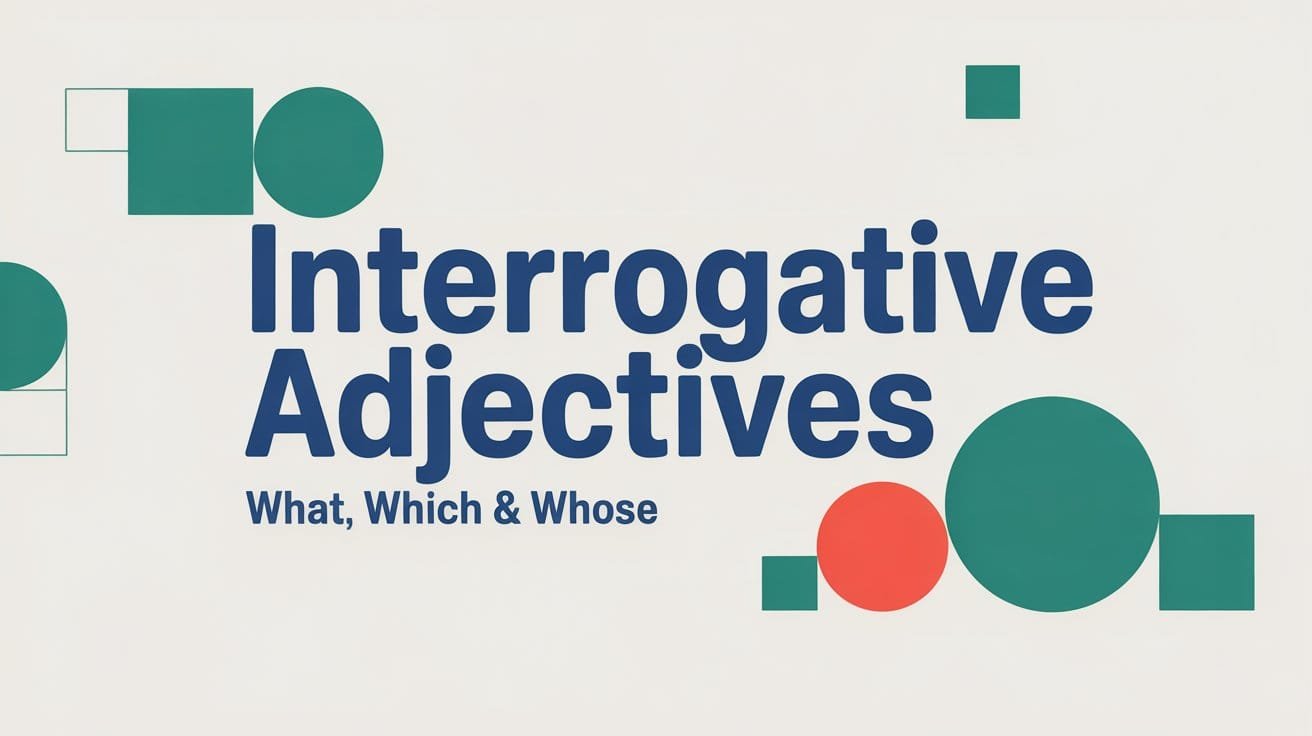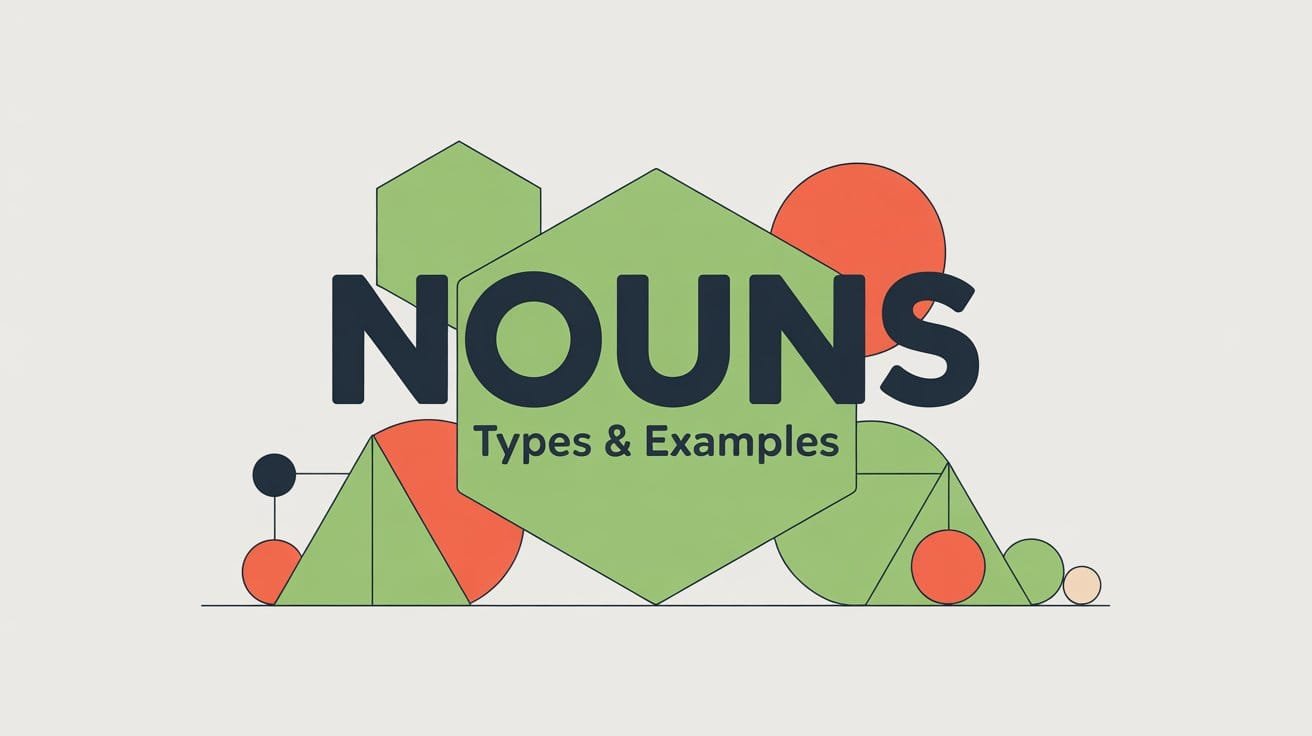Interrogative adjectives are words we use to ask questions, but they don’t stand alone. Instead, they always describe a noun that follows.
Words like what, which, and whose are commonly used as interrogative adjectives when they directly modify a noun. Knowing how they work helps you form clear and correct questions in English.
What Are Interrogative Adjectives?
An interrogative adjective is a word used to ask a question, and it always appears before a noun to modify it. Unlike interrogative pronouns, which replace nouns, interrogative adjectives describe and introduce the noun in the question.
The most common interrogative adjectives in English are:
- What
- Which
- Whose
These words help ask for specific information about people, things, or choices.
Examples:
- What time does your flight depart?
- Which dress do you prefer?
- Whose car is blocking the driveway?
Usage of Interrogative Adjectives
Interrogative adjectives help form direct questions by modifying a noun. Below are the three main types, each used for a different kind of question.
1. Which – For Choice or Selection
Use which when asking someone to choose from a known set of options.
Examples:
- Which cake would you like—chocolate or strawberry?
- Which restaurant serves the best seafood in town?
2. What – For General Information
Use what when you’re asking about something more open-ended, without a fixed list of choices.
Examples:
- What flavor do you want to try next?
- What movie are we watching tonight?
It’s used when the answer could be anything, not just from a limited group.
3. Whose – For Ownership or Possession
Use whose when asking who owns or is associated with a particular item.
Examples:
- Whose cake is on the counter?
- Whose phone keeps buzzing on the table?
It shows a relationship between a person and the noun that follows.
Interrogative Adjectives vs. Interrogative Pronouns
It’s easy to confuse interrogative adjectives with interrogative pronouns because they use the same words—what, which, and whose. The difference lies in how they’re used.
| Usage | Interrogative Adjective | Interrogative Pronoun |
|---|---|---|
| Comes before a noun | What color do you like? | — |
| Stands in place of a noun | — | What do you mean? |
| Shows ownership | Whose jacket is this? | Whose is this? |
Examples of Interrogative Adjectives in Sentences
- Which route should we take to avoid traffic?
- Whose umbrella is lying in the hallway?
- What questions will be on the test?
- Which flavor do you prefer—vanilla or chocolate?
- Whose shoes are by the door?
- What book did she recommend?
- Which phone has better battery life?
- Whose handwriting is on the envelope?
- What color should we paint the room?
- Whose idea was it to skip the meeting?
- What problem are they trying to solve?
- Which team won the match yesterday?
- Whose backpack is this on the bench?
- What type of music do you listen to?
- Which dessert would you like to try?
- What reason did they give for the delay?
FAQs About Interrogative Adjectives
What are the interrogative adjectives in English?
The three main interrogative adjectives are: what, which, and whose. They are used to ask questions and always modify a noun.
How are interrogative adjectives different from interrogative pronouns?
Interrogative adjectives describe a noun in the question:
✔ What book are you reading?
Interrogative pronouns replace the noun:
✔ What are you reading?
Can interrogative adjectives be used without a noun?
No. If the word isn’t followed by a noun, it’s no longer an adjective—it becomes a pronoun.
Is “who” an interrogative adjective?
No. Who is an interrogative pronoun. Interrogative adjectives include only what, which, and whose when they come before a noun.
Can I use “whose” to ask about objects?
Yes. Whose can refer to both people and things.
✔ Whose phone is this?
✔ Whose jacket was left behind?



